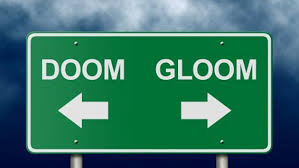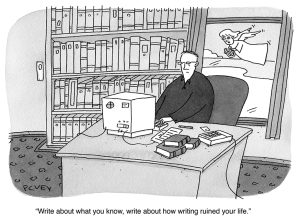 How did an old-school scribbler—a garret-sitting recluse and hater of newfangled technology—make the leap to electronic publishing, social networking, and that bête-noire of all things authentic, self-promotion?
How did an old-school scribbler—a garret-sitting recluse and hater of newfangled technology—make the leap to electronic publishing, social networking, and that bête-noire of all things authentic, self-promotion?
The leap is not complete. Right now, I’m skidding between safe harbors, grappling my way up the slopes of a “vertical learning curve.” Whether I manage to touch down lightly in the high-tech literary world remains to be seen. You’re invited to watch the virtual Reality Show of my struggle, right here on the Blog at the website I never thought would bear my name!
What forces a formalist poet and literary novelist like yours truly to attempt such a jump in the first place? Short version: I found myself at a crossroads where I had to make a drastic change. I needed to take my artistic future in my own hands, or else do something destructive—reject my identity as a writer: erase files, burn journals, rent out my office to a deserving graduate student.
As writers (or artists of any stripe) our own psychology is no doubt our greatest asset. It can also become a terrific stumbling block. Before I began inching forward with self-publishing plans, I had hit an all-time low. I fell into a depression and suffered from agoraphobia, refusing to leave the house for days on end.
One of my favorite cartoonists, Peter Vey (www.pcvey.com), brilliantly captures aspects of those feelings in an item I ran across in The Funny Times (www.funnytimes.com)—

Writing can be a lonely business. For almost two wasted years, I DID feel that writing had ruined my life: While others engaged with the world, teaching children to read, growing food, or building cars, I sat in my garret pondering a fuzzy navel. I had dedicated my “talents”—paltry as they seemed—to a cruel muse who offered fewer satisfactions with each passing year. Self-expression was my be all and end all, but if no one beyond the self takes the slightest interest, what’s the point in expressing anything?
What do you think: Is writing an isolating occupation, or does the exercise of imagination let you connect with all humanity? Are artists more prone to depression than people in other walks of life? Please feel free to comment on other relevant matters, as well.
